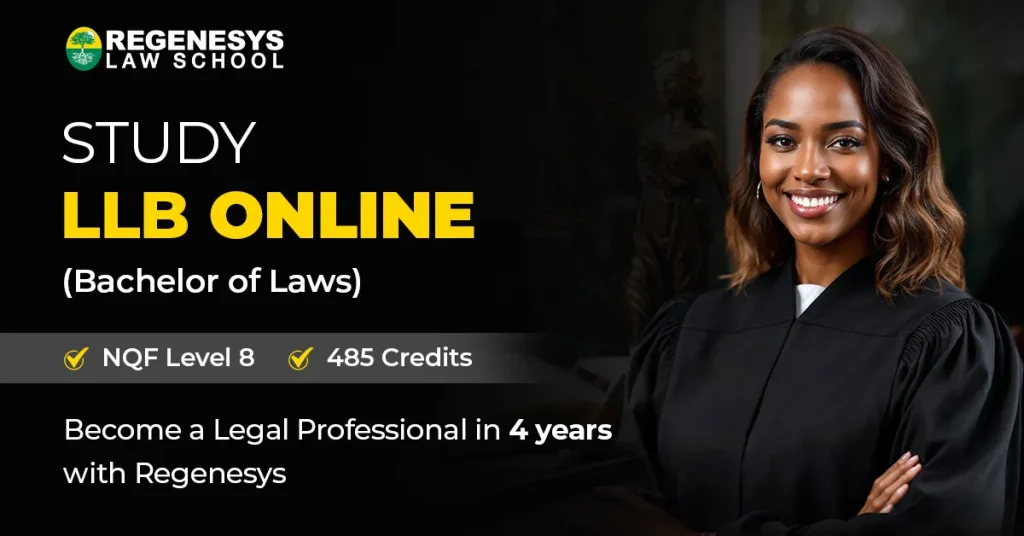The legal profession in South Africa is one of the most respected and structured career fields. It offers diverse opportunities across public, corporate, and private sectors. Understanding the different types of lawyers in South Africa helps aspiring professionals choose a path that aligns with their interests and goals.
From criminal and corporate law to emerging fields such as cyber law, South Africa’s legal system accommodates a broad range of specialisations.
This article explores the major legal professions in South Africa, their functions and educational routes.
Table of Contents
- Overview of the Legal Profession in South Africa
- Main Types of Lawyers in South Africa
- Lawyer Specialisations in South Africa
- Emerging Legal Specialisations in South Africa
- How to Become a Lawyer in South Africa?
- Conclusion
- Start Your Learning Journey This Black Friday!
- Types Of Lawyers In South Africa – FAQ
Overview of the Legal Profession in South Africa
The South African legal system operates within a well-established framework. This ensures that the law serves justice, equality, and human rights. The two most recognised legal professions in South Africa are attorneys and advocates, each with distinct responsibilities and career paths.
Attorneys are client-facing professionals who provide legal advice, prepare contracts, and handle documentation. They represent clients in lower courts and are often the first point of contact for legal issues. Advocates focus on courtroom litigation and specialise in representing clients in higher courts.
The Legal Practice Council (LPC) regulates these professions, ensuring ethical conduct and maintaining professional standards. Within this structure, the different types of attorneys specialise in areas like family, corporate, and criminal law, allowing for diverse professional growth.
Read more on What is a Bachelor of Laws (LLB) degree? here

Main Types of Lawyers in South Africa
South Africa’s legal field includes several broad categories of lawyers, each contributing uniquely to the justice system. These core roles form the foundation of the legal profession in South Africa, supporting justice through legal advice, representation, and policy development.
The table below provides an overview of the most common types of lawyers in South Africa.
|
Type of Lawyer |
Primary Role |
Work Environment |
Qualification Path |
|
Provides legal advice, drafts documents, and represents clients in lower courts |
Law firms, private practice |
LLB + Articles of Clerkship + LPC Admission | |
|
Advocate |
Specialises in court advocacy and legal argument |
Chambers, courts |
LLB + Pupillage + Bar Examination |
|
Corporate Counsel |
Advises companies on contracts, compliance, and risk |
Private companies, corporations |
LLB + Practical training |
|
Government Lawyer / Prosecutor |
Represents the state in legal matters and prosecutions |
Public sector, NPA |
LLB + LPC / State training |
Read more on LLB Career Advantages: Benefits of Holding an LLB Degree here
Lawyer Specialisations in South Africa
Once admitted to the profession, legal practitioners in South Africa can pursue specific lawyer specialisations based on their interests and expertise. These different types of lawyers offer varied professional experiences. This allows legal graduates to align their work with their personal values and professional aspirations.
Let’s look at some of them below:
Corporate and Commercial Lawyers
Corporate lawyers manage contracts, mergers, acquisitions, and compliance with business laws. They often work in large firms or corporate legal departments and play a critical role in commercial negotiations and governance.
1. Criminal Lawyers
Criminal defence lawyers protect the rights of individuals accused of crimes, while prosecutors represent the state in criminal proceedings. This field demands strong analytical and advocacy skills, making it one of the most sought-after lawyer specialisations in South Africa.
2. Family Lawyers
Family lawyers address domestic matters such as marriage, divorce, custody, and inheritance. Their role requires empathy and negotiation skills, as they often handle emotionally sensitive cases.
3. Labour and Employment Lawyers
These lawyers manage workplace disputes, employee contracts, and unfair dismissal cases. They ensure compliance with South African labour legislation and represent both employers and employees in labour courts.
4. Environmental Lawyers
Environmental lawyers advise clients on sustainability laws and regulatory compliance. They often work with corporations, NGOs, or government agencies promoting environmental responsibility.
5. Human Rights and Constitutional Lawyers
Focused on protecting civil liberties, human rights lawyers handle cases related to discrimination, constitutional interpretation, and public interest litigation, often collaborating with advocacy groups.
Emerging Legal Specialisations in South Africa
The legal landscape is evolving rapidly with technological advancement and globalisation, creating new career paths for lawyers in SA. These emerging fields reflect how lawyer specialisations in South Africa continue to adapt to new business and societal needs.
Modern law graduates are exploring innovative specialisations such as:
- Cyberlaw and Data Privacy – Addressing digital rights, cybersecurity, and online compliance.
- Intellectual Property Law – Protecting creative, literary, and technological innovations.
- International Trade and Maritime Law – Regulating international commerce, shipping, and cross-border trade.
- Alternative Dispute Resolution (ADR) – Focusing on arbitration and mediation for efficient conflict resolution outside courtrooms.
How to Become a Lawyer in South Africa?
To qualify as a legal professional in South Africa, the foundational requirement is a Bachelor of Laws (LLB) degree from an accredited institution such as Regenesys Law School. Our LLB programme provides an in-depth understanding of South African law, legal ethics, and practical application.
After completing the LLB, graduates must undergo Practical Vocational Training. These are articles of clerkship for attorneys and pupillage for advocates. This is followed by admission through the Legal Practice Council.
To gain admission into our CHE-accredited Bachelor of Laws, applicants must meet the following criteria:
- Matric with Bachelor pass or NQF level 4 equivalent qualification.
- English 1st – 50% | English 2nd – 60%.
- A levels for International students (Africa).
- Higher level pass for international students 26 APS.
- Competent in Mathematics, English, written and oral communication skills at NQF Level 4.
- Basic computer skills, internet connection and relevant IT resources.
Read more on The Pros and Cons of Studying an Online LLB Programme here

Conclusion
The legal profession in South Africa remains one of the most respected career fields and offers multiple career roles. Whether pursuing criminal defence, corporate law, or emerging areas such as data privacy, the different types of lawyers in South Africa provide an opportunity for individuals to make a positive impact on society.
The Bachelor of Laws (LLB) programme at Regenesys Law School equips students with a strong foundation in legal principles, ethics, and practice. With flexible learning options and experienced faculty, we prepare graduates for success across diverse career paths for lawyers in SA.
Start your legal journey with Regenesys Education today and build a career that upholds justice, equality, and professional excellence.
Start Your Learning Journey This Black Friday!
Types Of Lawyers In South Africa – FAQ
What are the main types of lawyers in South Africa?
The main types include attorneys, advocates, corporate counsels, and government lawyers, each serving specific legal and advisory roles.
How do attorneys differ from advocates in South Africa?
Attorneys handle client interactions, contracts, and lower court cases, while advocates specialise in litigation and represent clients in higher courts.
Which lawyer specialisations in South Africa are in high demand?
Corporate, criminal, and labour law remain traditional favourites, while cyberlaw and intellectual property are rapidly growing fields.
How long does it take to qualify as a lawyer in South Africa?
Typically, it takes four years to complete an LLB, followed by one to two years of practical training before admission.
What qualifications are needed to study law in South Africa?
To apply for the Regenesys Law programme, applicants need a Matric with a Bachelor pass or an equivalent NQF Level 4 qualification, proficiency in English, and basic computer skills.







